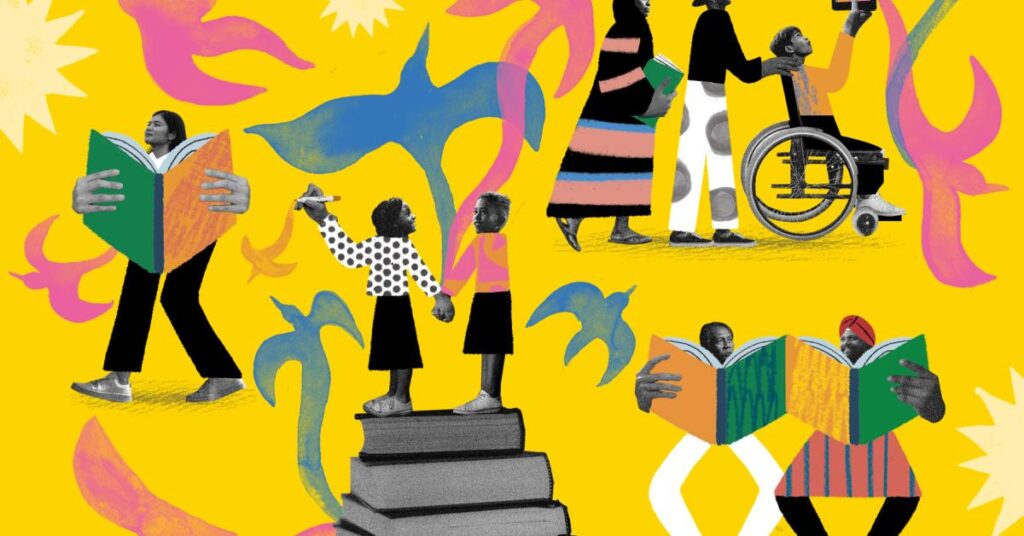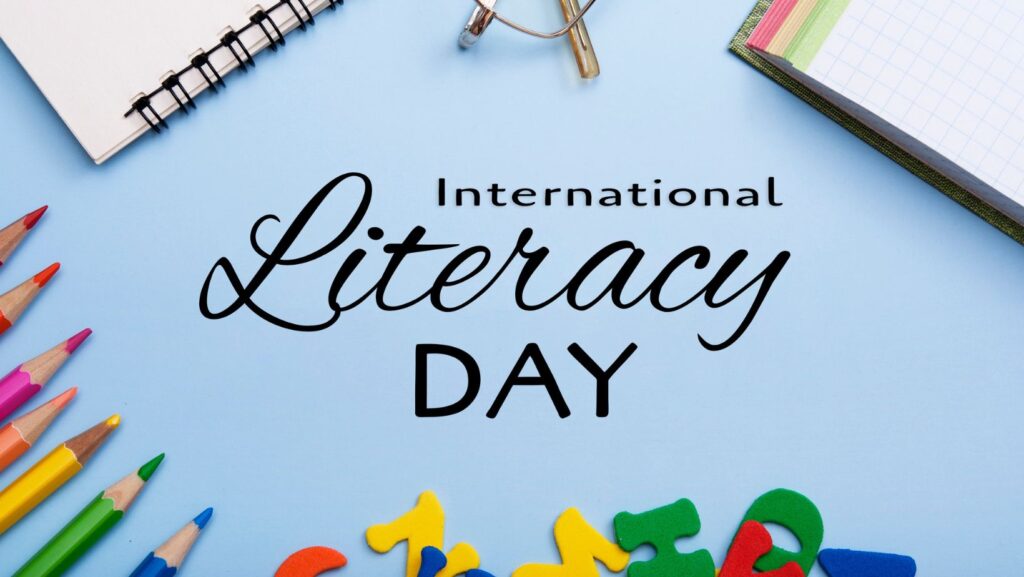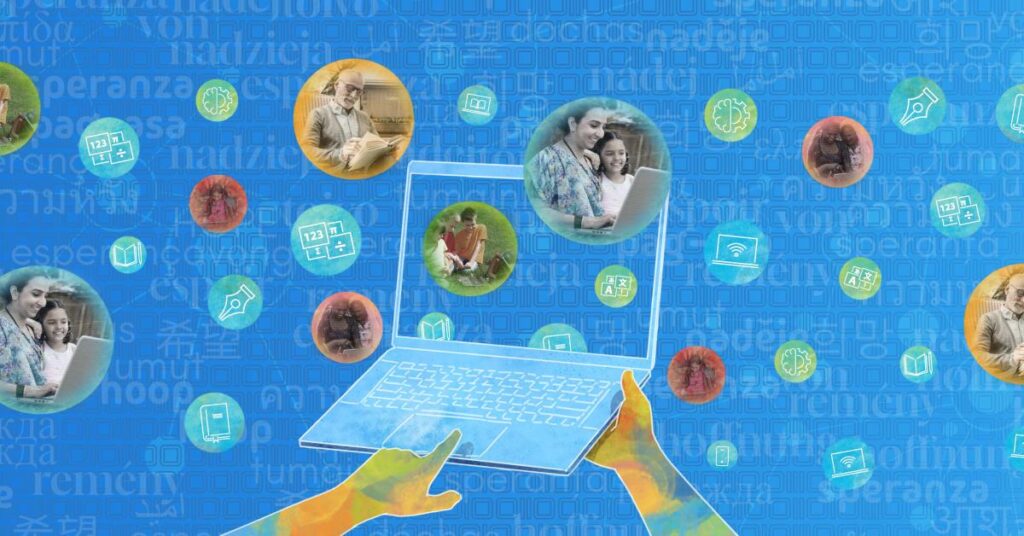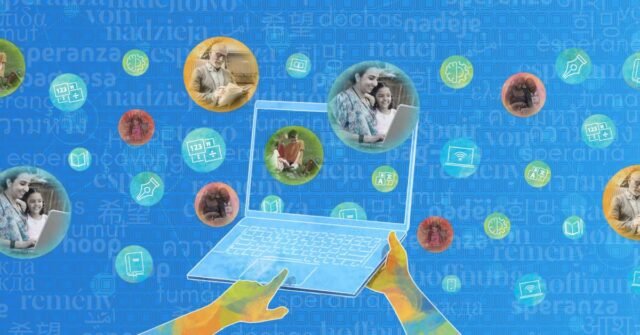Each year on 8 September, the world marks International Literacy Day, a date UNESCO officially proclaimed back in October 1966, with the first celebration in 1967. This day is more than a commemoration—it’s a global call for action, urging us to affirm that literacy is a fundamental human right and a pillar of peace, development, and equity. And this year—2025—the message is crystal clear: literacy must evolve with the digital world, or it risks becoming obsolete.
This editorial unpacks why UNESCO has chosen the theme “Promoting literacy in the digital era”, what that truly means for individuals and communities, and how the global celebrations aim to spark lasting change.
Table of Contents

Why This Year’s Theme Matters—Especially Now
Digital transformation is reshaping how we live, learn, work, and connect—and not always for the better. UNESCO draws attention to a disturbing reality: an estimated 739 million young people and adults still lack even basic reading and writing skills as of 2024. That’s nearly one in ten globally, and for many, being unable to navigate the digital world just compounds their exclusion—a phenomenon UNESCO calls “double marginalisation.”
The digital era brings incredible learning opportunities: remote classrooms, literacy programmes online, and digital platforms offering access even in distant communities. Yet, these tools can also widen the gap—those without skills or access fall further behind. UNESCO’s theme pushes us to recognise literacy not just as reading or writing on paper, but the ability to access, understand, evaluate, create, communicate, and engage with digital content safely and critically.
This is no abstract theory—it’s a matter of daily life. From discerning fake news to accessing online services, digital literacy is a modern form of empowerment.
UNESCO’s Global Celebration: What to Expect
This year’s global event is slated for 8 September 2025, hosted at UNESCO Headquarters in Paris, and broadcast live worldwide. It is a hybrid conference, blending physical presence with virtual reach.
What’s on the agenda? It’s a packed programme:
- Reflecting on digital literacy’s promises and pitfalls;
- Exploring how lifelong learning systems can adapt in a digital age;
- Showcasing effective digitally empowered literacy programmes;
- Discussing the future of literacy as technology continues to evolve;
- Honouring six laureates of the UNESCO International Literacy Prizes, whose innovations power change across the globe.
Attendees? A diverse mix—government representatives, education and digitalisation specialists, civil society, NGOs, private sector partners, learners, educators, researchers—all gathering (either in person or online) to chart a path for inclusive learning in the digital world.
This is not just a ceremonial event—it’s a moment of collective reflection, critical dialogue, and recognition of real, impactful work.

Risks, Reflections, and the Road Ahead
The digital age presents a mixed bag. UNESCO highlights real concerns: privacy breaches, digital surveillance, the spread of biased algorithms, seductive but passive consumption, and even environmental costs tied to technology. Yet simultaneously, there’s a bright side: digital tools can unlock doors—for marginalised learners, for communities, for educators reimagining learning.
The task before us? Ensuring these tools deliver inclusion, not exclusion. UNESCO’s approach reminds us that literacy must now encompass critical thinking: discerning credible information from misinformation, weighing content, and using digital tools mindfully.
Moreover, UNESCO is committed to pushing literacy as a common good and a human right, a lever for empowerment, transformation, and ultimately, the building of more inclusive, just, and sustainable societies.
This is especially urgent for Nigeria and other nations grappling with regional disparities in education. Digital literacy must complement, not replace, traditional gains.
From Global Goals to Local Action: What This Means for Us
What does International Literacy Day mean on the ground, here in Nigeria, and across similar contexts? It’s an opportunity to think deeply about how our communities and systems adapt.
- Policy makers: It’s time to integrate media and information literacy into school curricula. UNESCO encourages countries to weave these competencies throughout education systems.
- Educators and institutions: From primary schools in Kano to adult learning centres in Abuja, there’s a chance to reimagine teaching methods, curricula, and outreach—blending traditional skills with digital know-how, without losing cultural relevance.
- Civil society and communities: The goal is clear—literacy that empowers. Storytelling, multilingual education, community learning platforms, and digital access projects can build bridges between generations, languages, and learning modes.
- Learners and families: Whether navigating e-government forms online or helping a child with schoolwork, digital literacy equips us for everyday tasks and beyond.

Conclusion
International Literacy Day 2025 is not merely a calendar reminder—it is a clarion call. It urges us to acknowledge that literacy today means much more than deciphering letters; it means navigating bytes, screens, and digital spaces with confidence, discernment, and purpose.
UNESCO’s theme—“Promoting literacy in the digital era”—challenges us to protect no one is left behind, to empower all through information, technology, and inclusive learning. As the world gathers in Paris (and online), let’s bring that spirit home. Let this day spark action—from Abuja to Maiduguri, Lagos to Kano—to cultivate literacies that respect tradition while boldly embracing the digital future.
Join Our Social Media Channels:
WhatsApp: NaijaEyes
Facebook: NaijaEyes
Twitter: NaijaEyes
Instagram: NaijaEyes
TikTok: NaijaEyes
READ THE LATEST EDUCATION NEWS













![Heartwarming Moment: Priscilla Ojo and Son Rakeem Reunite with Juma Jux in Tanzania [VIDEO] Priscilla Ojo](https://naijaeyesblog.com/wp-content/uploads/2025/09/Reunited-Priscilla-Ojo-says-as-she-celebrates-son-Rakeem-one-month-Kemi-Filani-blog-min-768x512-1-1-180x135.avif)


























